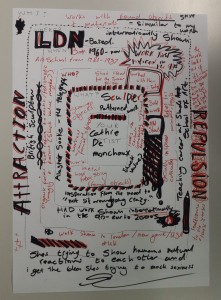
Following a hiatus over the Christmas period, we’re back with a new application of the Reframing technique. Staff in Fine Art asked Writing PAD to work with their students on the development of ideas surrounding a chosen artist. The work produced during the session then fed into a student blog post for a Contextual & Professional Studies module.
I’ll let the students provide the commentary on the experience: key themes drawn from student feedback below…
This technique provided different way of approaching a written assignment – an alternative to more traditional ways of tackling research and writing:
‘Researching the artist in different ways helped me understand…’
‘A different perspective…’
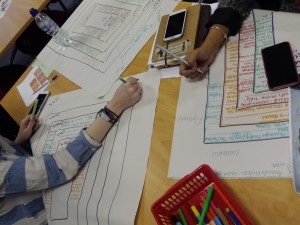
Reframing enables learners to categorise different aspects of a research subject – this can help to a sometimes daunting task more manageable:
‘…it broke everything down…’
‘It helped break down the key information…’
‘Frame helps to break down the research into smaller manageable chunks…’
One of the aims of this workshop was to encourage students to think more deeply in terms of their chosen artist:
‘…really good way to get you thinking about aspects for researching.’
‘It is a thorough tool to enable us to learn in depth about artists…’
‘I found the prompts & questions very helpful and thought provoking.’
‘Thinking more about my artist & concepts…’
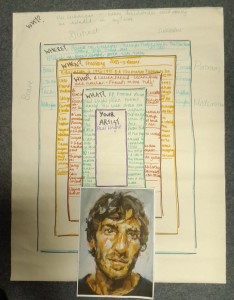
Addressing anxieties about writing is central to the Writing PAD philosophy:
‘I found this method so much easier than just being told to write about an artist. It gives direction which I find useful as my writing is not very strong.’
‘Helped me understand how to write my blog posts better…’
‘…helping me with my blog and how to write, which I have been struggling with.’
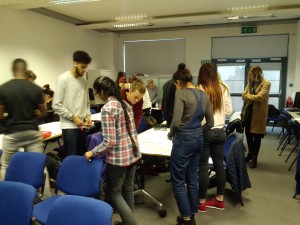
The Reframing session involves kineasthetic learning – a method more often found within studio practice:
‘It was more enjoyable than just sitting at a desk.’
‘It was different and practical and that’s why I liked it.’
‘I liked having an activity that was hands on and engaging…’
The workshop was designed to be lively and encouraged discussion with peers:
‘I found this a highly stimulating and energising exercise…’ ‘…more interactive and stimulating to write and talk with the group…’
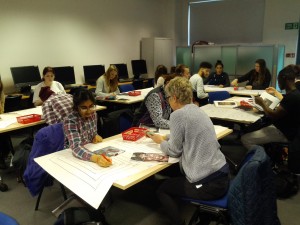
A distinctive aspect of Reframing is that it provides a clear visual structure in which to place research material:
‘Found this process really helpful in the way of pulling information out of an artist with a structure to it.’
‘Well structured and thought out…’
‘Frames are a good structure for research.’
‘…gave me an idea on how to approach my contextual research in this sort of a structure…’
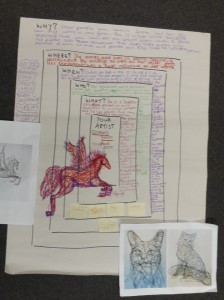
This process enables students to ‘see’ connections between different frames surrounding their artist:
‘…relationships between the frames can be recognised.’
‘One thing leads to another thing you can research which is useful.’
The development of research skills is a key aspect of the workshop:
‘Was very beneficial and really eased the stress on how hard researching for artists for blog posts can be.’
‘…think it helped me to find out more valuable research which could help me create a strong, well informed piece of writing.’
‘Helpful to be able to research an artist and getting a well-informed conclusion of their work in context.’
‘…also develops research methods for any subject.’
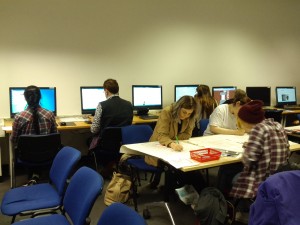
We hope that Reframing will become a permanent fixture within the Fine Art curriculum, and that this will lead to other visual and kineasthetic techniques being used in the future.
Next time, Writing PAD tests out the uncharted waters of Biomedical Science…
Julia